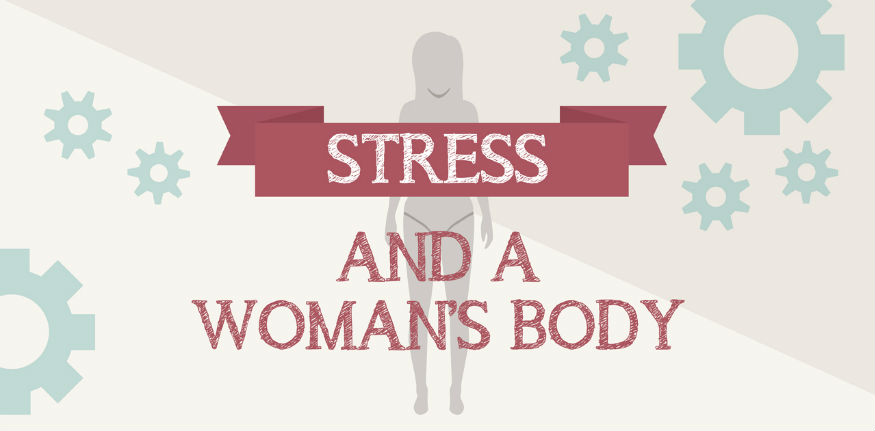 zea_lenanet/Fotolia
zea_lenanet/Fotolia
As the December holidays bear down upon us, it is probably safe to say that many people are feeling the effects of stress. Stress can be due to good reasons. Family gatherings, gift wrapping, baking, traveling and such are often fun, festive affairs.
However they still cause stress and wear the body down. On the flip side, ‘tis the season to eat too much, stay up too late, spend too much, deal with wintery conditions, be surrounded by bickering family, and muddle through crowded highways and airports — all in an attempt celebrate.
Is it worth it? Maybe.
Here are 3 reasons stress is the most dangerous toxin in your life.
1) Stress can affect your heart health.
The American Heart Association reports that stress affects lifestyle factors and behaviors that can lead to heart disease such as smoking, drinking in excess, overconsumption of food, and stopping exercise due to lack of time.
These can all be detrimental to the heart through an increase in blood pressure and cholesterol.
In addition, it is well known that the most common time to have a heart attack is Monday morning.
However, research shows that those who have an cardiovascular event between 6 a.m. and noon suffer the worst consequences as they have a much larger infarct area, or area of dead tissue due to lack of blood supply, in the heart.(5)
A commonly suggested theory is that people are more stressed Monday morning after the weekend, or are more stressed heading to work (or starting their day) in general.
2) Stress can weaken the immune system response.
How many know of someone who have had a terribly stressful event happen in their life, and then go on to develop a chronic condition, autoimmune disease or cancer? Stress can lower or suppress the immune system response in the body, resulting in more illness and slower recovery, or an inability to recover at all. Chronic stress can have the same effect.
It is important to think about all areas of a person’s life. That includes their job, their family, their marriage, their friendships, their lifestyle, their hobbies, and their mental/emotional state.
3) Stress basically affects everything.
Chronic long-term stress can increase inflammation, worsen joint pain, create headaches, and cause ulcers. It can affect digestion including gas, bloating, constipation, heart burn, and diarrhea. Constant stress can interfere with sexual function and fertility. It can worsen depression, stimulate anxiety, cause sleepless nights, and so much more.
Stress is everywhere, and while there is very little chance to avoid it, there are plenty of ways to manage it.
First, talking with a trusted health care provider or counselor is a good place to start.
Second, recognize the most stressful things that are contributing to your life, and then work to reduce or eliminate them as best you can.
Third, focus on you. Consider meditation, healthy eating, plenty of water, relaxing baths, monthly massages, a good book, or whatever else it may take to help reduce those stress hormones.
Finally, focus on what you can improve. The only absolutes in life are death and taxes, so work to make choices that help your long term health, and let go of the rest.
Sources:
1) American Heart Association. (2014). Stress and Heart Health. Retrieved from
http://www.heart.org/HEARTORG/Conditions/More/MyHeartandStrokeNews/Stress-and-Heart-Health_UCM_437370_Article.jsp#.VmELNXlzOM8
2) Cohen, S., Janicki-Deverts, D., Doyle, W., Miller, G., Frank, E., Rabin, B, and Turner R. (2011). Chronic Stress, glucocorticoid receptor resistance, inflammation and disease risk. Retrieved from
http://www.pnas.org/content/109/16/5995.abstract
3) Reiche, E., Nunes, S., and Morimoto, H. (2004). Stress, depression, the immune system and cancer. Retrieved from
http://www.ncbi.nlm.nih.gov/pubmed/15465465
4) Segerstrom, S. and Miller, G. (2004). Psychological stress and the human immune system: A meta-analytic study of 30 years of inquiry. Retrieved from
http://www.ncbi.nlm.nih.gov/pmc/articles/PMC1361287
5) Suarex-Barrientos, A., Lopez-Romero, P., Vivas, D., Castro-Ferreira, F., Nunez-Gil, I., Franco, E., Ruiz-Mateos, B., Garcia-Rubira, JC., Fernandez-Ortiz, A., Macaya, C., and Ibanez, B. (2011). Circadian variations of infarct size in acute myocardial infarction. Retrieved from
http://heart.bmj.com/content/97/12/970.full
Reviewed December 4, 2015
by Michele Blacksberg RN
Edited by Jody Smith





Add a CommentComments
There are no comments yet. Be the first one and get the conversation started!